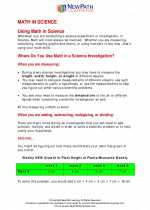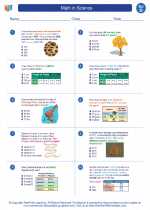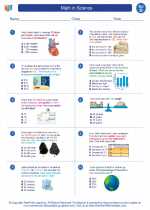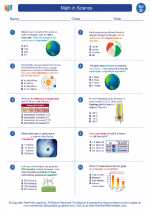Math in Science: An Explanation and Study Guide
Mathematics and science are closely intertwined, with the use of mathematical concepts and techniques being fundamental to the study and understanding of scientific phenomena. In the field of science, mathematics is used for collecting and analyzing data, making predictions, and understanding natural processes. Here are some key aspects of math in science:
Data Collection and Analysis
In scientific research, data is collected through observations, experiments, and measurements. Mathematics is used to represent and organize this data through tables, graphs, and equations. Statistical methods are applied to analyze the data, identify patterns, and draw conclusions.
Measurement and Units
Measurement is a crucial aspect of scientific study, and mathematical concepts such as units, conversions, and precision play a significant role. Understanding and applying measurement units, as well as performing calculations involving measurements, are essential skills in scientific experiments and analysis.
Modeling and Prediction
Mathematical models are used to represent natural phenomena and processes in science. By using equations and mathematical relationships, scientists can make predictions about the behavior of systems, the outcome of experiments, and the effects of variables. This allows for the exploration of various scenarios and the testing of hypotheses.
Study Guide
To effectively understand and apply math in the context of science, it is important to master certain mathematical concepts and skills. Here are some key topics to focus on:
- Understanding and using measurement units (e.g., metric system, conversions)
- Graphing and interpreting data (e.g., line graphs, bar graphs, scatter plots)
- Basic statistical analysis (e.g., mean, median, mode, range)
- Algebraic expressions and equations
- Geometry and spatial reasoning
- Understanding and applying mathematical models in science
By mastering these topics, students can develop a strong foundation for using math in science and gain the skills necessary to conduct experiments, analyze data, and make evidence-based conclusions in scientific investigations.
.◂Science Worksheets and Study Guides Fourth Grade. Math in Science

 Worksheet/Answer key
Worksheet/Answer key
 Worksheet/Answer key
Worksheet/Answer key
 Worksheet/Answer key
Worksheet/Answer key
